Last updated on September 10th, 2023 at 09:08 pm
Topical Authority is a concept that has garnered significant attention in the SEO community.
It refers to the perceived expertise or authority a website or content has over a specific topic or niche.
This article will dive deeper into this concept with the aim of shedding light on how to measure topical authority for websites.
Table of Contents
- 1 – Definitions and Misconceptions of Measuring Topical Authority
- 2 – Practical Approach on How to Measure Topical Authority
- 2.1 — 8 Metrics Used to Measure the Success of a Topical Authority Strategy:
- 2.2 1. Organic Traffic Growth:
- 2.3 2. Keyword Rankings:
- 2.4 3. Backlink Profile:
- 2.5 4. Engagement Metrics:
- 2.6 5. Social Shares and Mentions:
- 2.7 6. User Feedback and Comments:
- 2.8 7. Conversion Rate:
- 2.9 8. Featured Snippets and SERP Features:
- 3 – The Role of a Topical Approach Versus Keyword Focus
- 4 Conclusion
Although Search Engine Optimization (SEO) practices have continuously evolved with the advancement of search engine algorithms, “how to measure Topical Authority” is seldom fully understood.
We will start with an overview of the common definitions and also address the prevalent misconceptions surrounding this term.
At its core, Earning Topical Authority refers to the perceived expertise or dominance of a website or piece of content over a specific topic or niche.
It’s the digital equivalent of considering an individual an “expert” in a particular field.
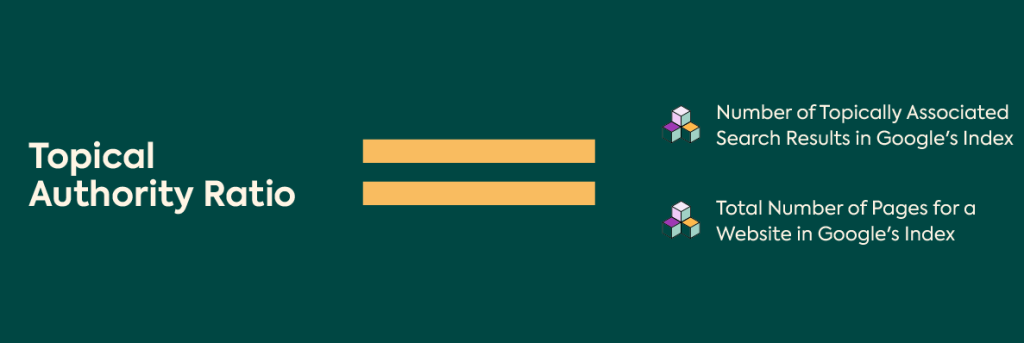
In the context of SEO, a website with high topical authority is seen as a trusted source of information, making it more likely to rank higher on search engine results pages (SERPs).
Common Definitions:
Depth of Expertise:
Most SEO professionals describe Topical Authority as the “depth of expertise.” In this view, a website achieves topical authority by consistently producing high-quality, comprehensive content that thoroughly covers a topic.
Niche Dominance:
Another perspective sees Topical Authority as a website’s dominance or authority over a broad set of ideas or a niche, rather than just a singular term or keyword.
Google’s Quality Measure:
Topical Authority is also perceived as one way Google evaluates a website’s “quality “. This is alongside other established metrics like Quality Rater Guidelines.
#Myth 1: Google’s Endorsement:
A major misconception is that “Topical Authority” is a term or metric officially endorsed or used by Google.
While Google does prioritize authoritative content, it hasn’t explicitly labeled any metric as “Topical Authority.”
#Myth 2: Quick Achievement:
Many believe that Topical Authority can be quickly achieved through a few well-crafted articles.
However, true authority is built over time, through consistent, high-quality content that addresses user queries comprehensively.
#Myth 3: Backlinks Over Content:
While backlinks are a crucial SEO factor, having numerous backlinks doesn’t automatically equate to high Topical Authority.
The quality and relevance of content play an equally, if not more, vital role.
While there isn’t a universally accepted, step-by-step procedure to quantify topical authority, it’s not an entirely intangible concept.
By meticulously reviewing a range of metrics, one can glean valuable insights into the effectiveness of their SEO Content strategy.
These metrics serve as indicators, each shedding light on different facets of authority, and together, they paint a comprehensive picture of a website’s standing and expertise within its niche.
Every topic has an inherent potential for traffic, dictated largely by its search volume.
This means that no matter how exhaustively a website covers a particular topic, there’s a ceiling to the traffic it can attract, set by the number of users actively searching for that subject.
Beyond just the volume, the competitive landscape of keywords associated with the topic also plays a critical role. Some keywords might be fiercely contested, making it challenging for a site to rank well and draw traffic.
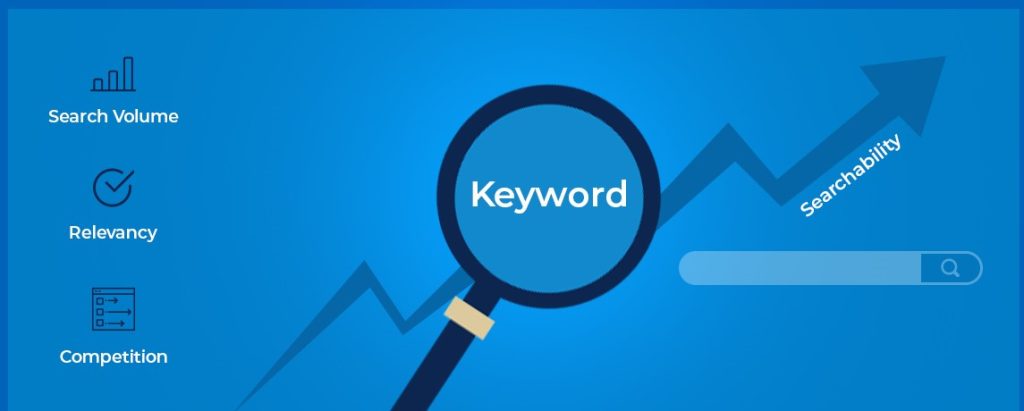
Yet, it’s crucial to understand that the essence of building topical authority isn’t solely about chasing high traffic numbers.
Rather, it’s about depth and comprehensiveness.
You can adopt a Topical Authority Map to ensure your website addresses every facet of a topic, catering to a wide array of queries, from the most common to the most nuanced.
It’s only by adopting such a thorough topical strategy approach, that a website positions itself as an indispensable resource, cementing its authority in its chosen domain.
So, if you believe that you’ve implemented this approach, review the metrics below to gauge the effectiveness of your SEO Content Strategy.
1. Organic Traffic Growth:
One of the primary indicators used to measure topical authority is a steady rise in organic traffic to the content or pages related to the specific topic.
A consistent uptick suggests that search engines recognize and reward your expertise in the subject.
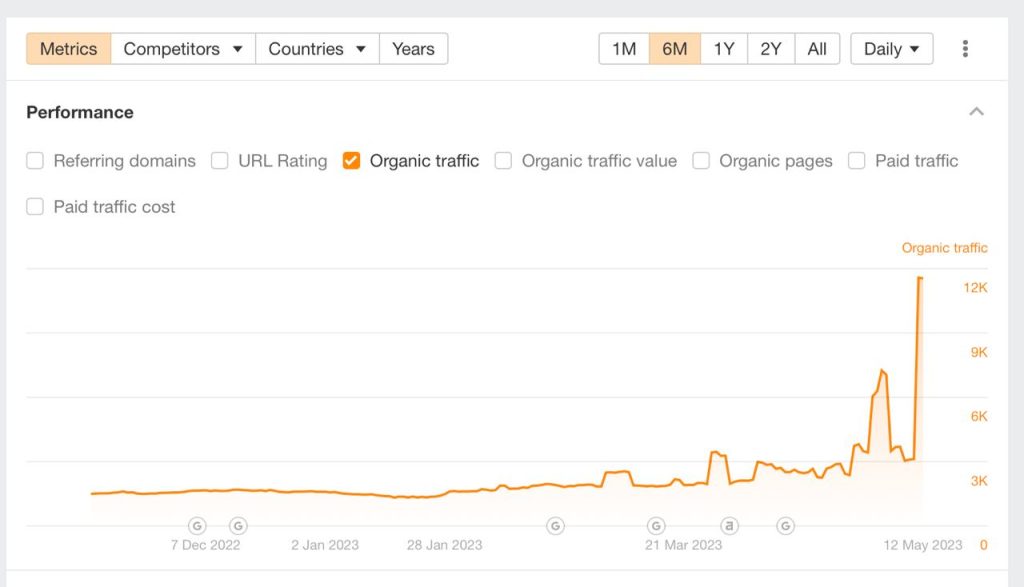
2. Keyword Rankings:
When measuring topical authority success, monitor the rankings of primary and LSI (Latent Semantic Indexing) keywords associated with your topic cluster content strategy.
A rise in rankings, especially for highly competitive keywords, indicates growing authority.
3. Backlink Profile:
A rise in Quality backlinks from reputable sources within your niche can significantly boost topical authority. Tools like Ahrefs or Moz can help analyze the quality and relevance of incoming links.
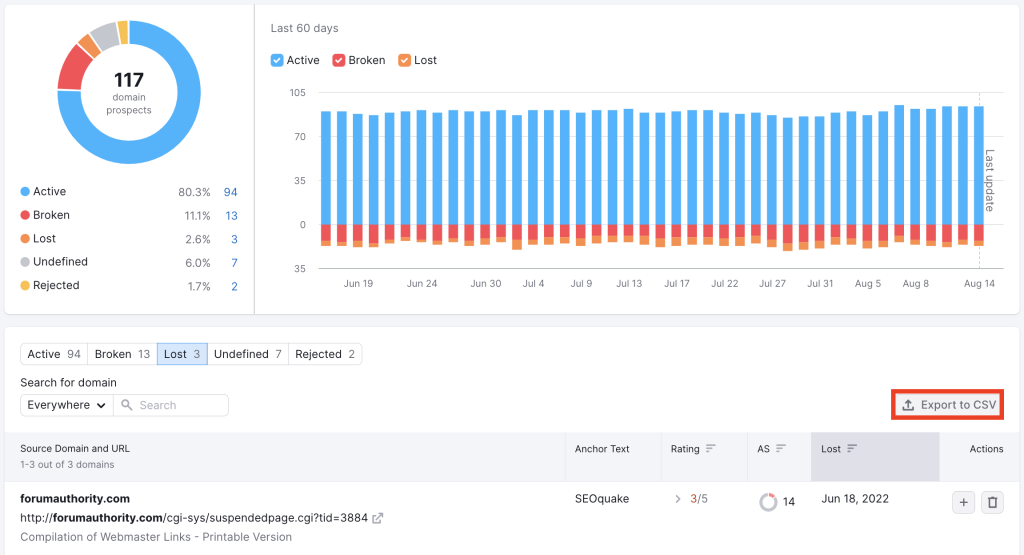
Alternatively, you can use our free Backlink analysis tools to assess their perceived value.
4. Engagement Metrics:
Analyze the comprehensiveness of your content. Are you covering all facets of the topic? Content audit Tools like SurferSEO can help evaluate the depth of your content compared to top-ranking competitors.

Ultimately, content with high engagement rates, including time spent on a page, page views, and low bounce rates, suggest that users find your website valuable and authoritative.
While social signals aren’t a direct ranking factor, they can be used to measure topical authority through how much your content is being shared.
A high number of shares and mentions across social platforms can indicate the value and trustworthiness of your content.

Additionally, If other authoritative sites within your niche are referring traffic to your content, it’s a strong indicator of your growing topical authority.
6. User Feedback and Comments:
Positive feedback, comments, and interactions on your content can provide qualitative insights into its value and your authority on the subject. If you’ve enabled comments, always ensure that you respond to your readers’ queries and feedback.
7. Conversion Rate:
Content that resonates with an audience does more than just draw them in; it compels them to take action. Whether it’s subscribing to a newsletter, making a purchase, or engaging in another desired activity, these actions signify more than mere interest.
8. Featured Snippets and SERP Features:
Securing a position within Google’s coveted featured snippets or other prominent Search Engine Results Page (SERP) features is no small feat.
These prime spots are reserved for content that not only answers user queries effectively but also exudes a high level of expertise, authoritativeness, and trustworthiness.
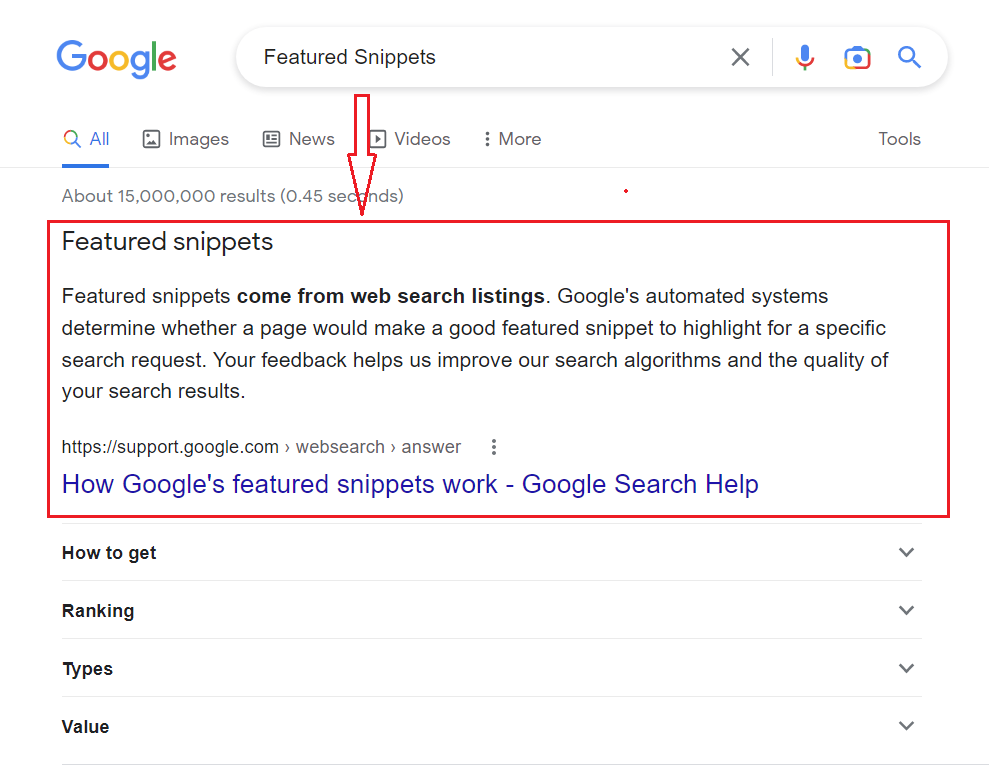
Therefore, when your content is showcased in these SERP features, especially for queries closely aligned with your topic, it’s akin to receiving a digital stamp approval from Google.
– The Role of a Topical Approach Versus Keyword Focus
While they might seem like two sides of the same coin, understanding the individual roles of Topical Approach and Keywords and finding their common ground can significantly impact how topical authority is measured.
Topical Approach: Depth Over Breadth
The Topical Cluster Approach emphasizes depth.
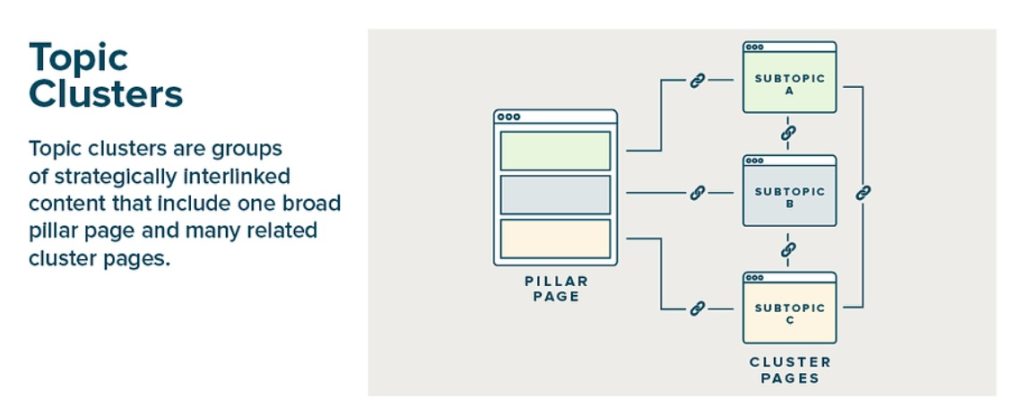
It’s not just about addressing a topic but delving deep into it, offering comprehensive insights, and establishing oneself as an authority.
This approach believes in creating content that covers all facets of a topic, ensuring that readers don’t need to go elsewhere for additional information.
By doing so, a website positions itself as a go-to resource, signaling search engines about its expertise and reliability.
The Critical Role of Keywords
Keywords, on the other hand, serve as navigational beacons.
They guide users to the content they seek, acting as the bridge between a query and its answer.
As such, strategically chosen and placed keywords ensure that content reaches its intended audience.
However, it’s not just about sprinkling popular terms throughout the content.
It’s about understanding user intent, finding the terms they’re likely to search for, and integrating them organically into the content.
Finding a Neutral Ground
While the Topical Approach vs. Keywords focus might seem like two different concepts, the reality is that the two strategies are closely knit:
- User-Centricity: Both approaches prioritize the user. While the topical approach ensures users get comprehensive answers, keywords ensure they find those answers in the first place.
- Quality Over Quantity: It’s not about how many topics you cover or how many keywords you integrate. Rather, it’s about the depth of your content and the relevance of the keywords you target.
- Organic Integration: Just as keywords should be integrated organically without disrupting the flow, topics should be addressed naturally, ensuring the content remains engaging and doesn’t feel forced.
The success of keywords can inform topic selection, and in-depth topical content can reveal new keyword opportunities.
By strategically integrating high-value keywords into a Topical Focused Approach, websites can signal their expertise to search engines.
The key lies in organic integration, ensuring content remains valuable and readable while being SEO-friendly.
Conclusion
In the end, establishing Topical Authority is a testament to a website’s commitment to providing value, expertise, and trustworthiness in its domain.
It’s a continuous endeavor, demanding consistency, quality, and a genuine desire to serve the audience.
While there isn’t a single, definitive metric to measure topical authority, a combination of the above metrics can provide a holistic view of your topical authority strategy’s success.



